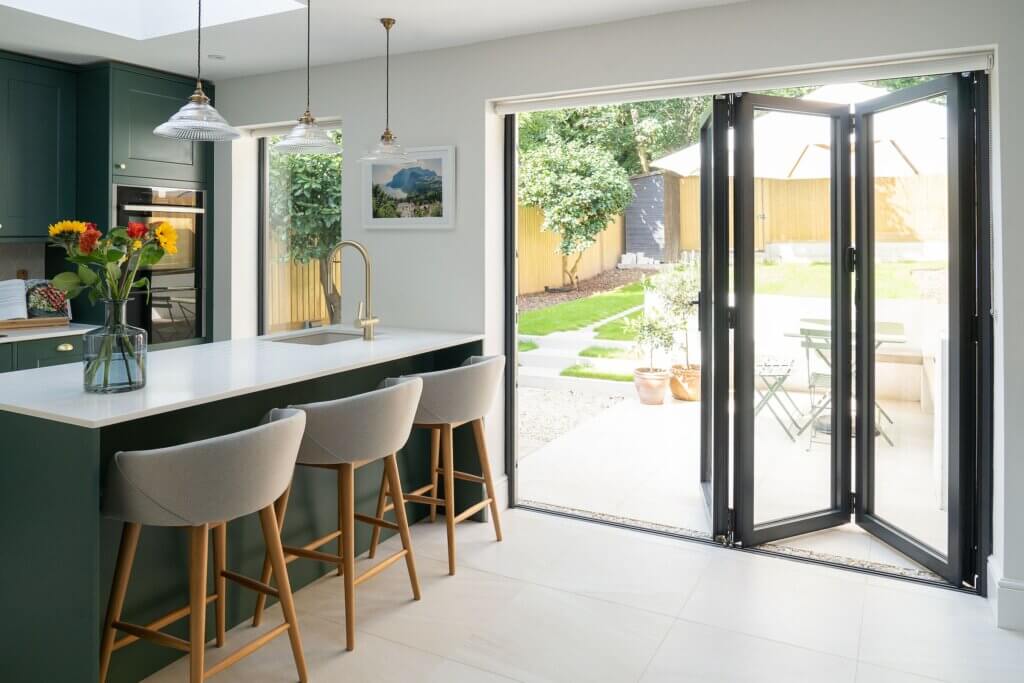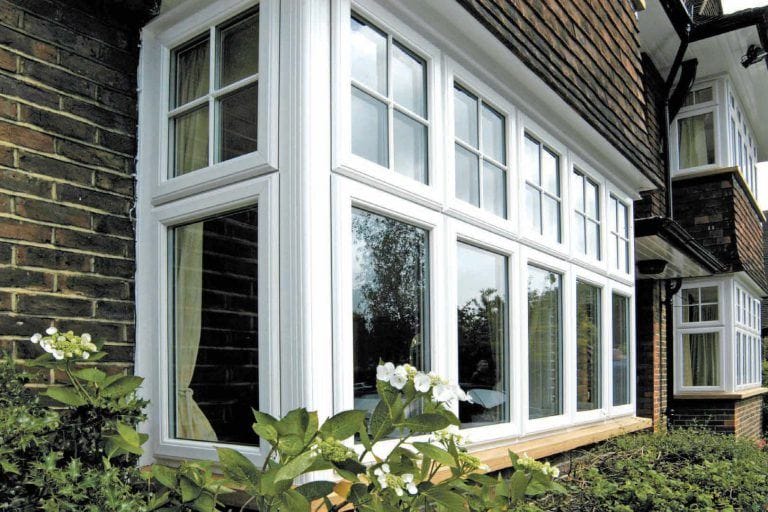
As the cost of living rises for households across the UK, spiralling energy prices impact those on lower incomes. However, we can take measures to save some money on our energy and heating bills.
Insulating the loft is a low-cost way to save money. A quarter of your home’s heat is lost through the roof as warm air rises, so check the depth of your loft insulation and add more if it is too thin to be effective. Hanging thick curtains can also help to retain heat in a room and prevent warmth from being lost through cold windows.
It is worth checking to see if you’re eligible for discounts on your energy – the Warm Home Discount is a good example.
It is easier to tackle energy-saving room by room, so let’s look at some relatively easy and quick tips to help save us money and some more significant moves we can take to save us even more over the long term.
Energy-saving tips for the kitchen
The kitchen is where we tend to use a lot of energy throughout the day. From cooking our meals to boiling the kettle for a cup of tea, there are minor changes we can make to save energy.
1: Use the microwave: The microwave is the most energy-efficient way to cook or reheat food. It reaches higher temperatures quicker than an oven, and its smaller size means that you are not wasting energy heating a large space to cook your food.
2: Use your kettle to boil water: When cooking food on a gas or electric hob, it is quicker and more energy-efficient to boil the water you need for your saucepans or to fill a steamer in the kettle rather than using the hob.
3: Only boil what you need: When filling a kettle for a cup of coffee or tea, make sure you only use as much water as you need to fill your cup. A lot of energy is wasted every day by people filling kettles and boiling water that they don’t actually need.
4: Use a slow cooker: Slow cookers are excellent energy-efficient cooking appliances. They use a fraction of the electricity than a traditional oven – just a little more than a standard lightbulb. They can save you time too. Fill it up and switch it on before leaving for work, and you will have a hot meal ready to eat when you get home.
5: Batch cook to save money: When you use your oven, fill it up as much as possible to maximise the space and heat used. Batch cooking a week’s worth of dinners that you can chill or freeze and reheat in your microwave can save you a lot of money on your energy bills.
4: Use the residual heat in the oven: If you have an electric oven, you can turn it off ten minutes before your food has finished cooking. The oven is well insulated and will retain the heat inside the oven at an optimal temperature for long enough to finish cooking your food without the oven needing to use more electricity.
5: Fill up your dishwasher: If you have a dishwasher, wait until it is full before running it. A half-full dishwasher will use the same amount of energy and water as a full load, so wait until your dishwasher is full and do fewer washes to help save you money on power and water bills.

Energy-saving tips for the living room
We spend most of our free time in the living room, and it is a place where a lot of energy savings can be made. If you have a family, your living room will be full of energy-draining gadgets and entertainment appliances that you can address.
1: Change your TV: With an average of 22.5 hours of TV being watched per household in the UK per week, our TV sets can be one of the most significant energy-using appliances in our home. If your TV is coming to the end of its life, consider investing in a low-energy model. A modern energy-efficient 32-inch LCD will tend to use 50% less power than a 42-inch plasma screen TV.
2: Switch off or standby?: Older TV models kept on standby can waste a lot of energy. It can save you up to £55 per year to switch off an older TV at the plug rather than leave it on standby. With new TVs, energy usage on standby is typically below one watt.
3: Ditch the desktop PC: With many more people working from home these days, it is essential to realise how much energy our laptops and computers use. If you don’t need a desktop PC set up for your work, then using a modern laptop is a far more energy-efficient option.
4: Upgrade your laptop: Newer laptop models are more energy-efficient than older ones. Modern laptops power on and off much quicker and have a longer battery life than older technology. This means you can safely turn off and unplug your laptop to save energy and not be tempted to leave it plugged in when not in use.
5: Use power-saving settings: Most computers, laptops, and tablets use almost the same amount of energy when used or sitting idle. If you must leave them running when not in use, use the sleep or hibernate setting to power down the screen or monitor within a couple of minutes of inactivity to help save energy.
Energy-saving tips for laundry and drying
Whether you keep your washing machine or tumble dryer in a utility room, in the kitchen, or in your garage, there is still money to be saved on the cost of doing your laundry.
1: Do more cold washes: Only particularly dirty clothes need to be washed at warmer temperatures. Most everyday laundry can be cleaned using cold water or run on a 30°C cycle. You can save up to £30 per year for an average family by switching to a cold wash.
2: Use the shortest wash cycle: Most washing machines will come with various settings, but the most economical ones are short settings using lower temperatures. Using short cycles will help save money on both your electricity and water bills. Washing in shorter, cold or cooler temperatures also reduces the damage washing does to your clothes, making them last longer.
3: Pre-soak dirty clothes: It can help break down dirt and prevent stains by pre-treating dirty clothes. This will help prevent you from repeatedly washing clothes because grime or stains didn’t come out. Rubbing over shirt collars or food stains with a standard bar of soap while pre-soaking can be very effective at removing stubborn stains.
4: Only run a full load: Wait until you have a whole load of laundry before running your washing machine. It is best to wait until you have enough clothes to fill your machine to avoid wasting water. Make use of any high-speed spin settings on your washing machine. Your clothes will come out almost dry to the touch and can then be line-dried, so you don’t need to use the tumble dryer.
5: Keep your tumble drying indoors: Did you know that your tumble dryer will use less energy when kept in a warm room? Your tumble dryer will use more power to heat up when kept in a cold shed or garage rather than in a warm room.
6: Avoid using a tumble dryer: If you can avoid using a tumble dryer completely, you can save up to £60 per year on your electricity bills. If you have a garden, use a clothesline to dry your clothes or buy a coated wire folding clothes horse.
Energy-saving tips for the bathroom
Although we don’t spend a lot of time in the bathroom, savings can be made. When you use any hot water in your bathroom, it takes energy to heat it.
1: Take showers instead of baths: You will use less energy and water by taking a quick shower instead of running a full bath or water. A four-minute shower can save you about £70 per year on energy bills.
2: Change your showerhead: Fitting a water-efficient showerhead will reduce the amount of hot water you will use in the shower, but it will still feel like you are taking a power shower.
3: Don’t leave the tap running: When washing your hands and face, or having a wet shave, put in the plug and fill the hand basin with just enough warm water to use instead of leaving the tap running. Turn off the tap when brushing your teeth to save water.
Conclusion
Some of the tips mentioned above will be more relevant to you than others. Look at adopting more of the low-cost tips listed here rather than spending out on the ones you cannot afford.
Monitor your energy consumption and see if you can make any further changes to bring down your energy bills to a more affordable level.
Do not be afraid to contact your energy suppliers if you are struggling to cover the cost of your energy bills. Many companies will be able to help by switching you to a cheaper deal, checking your eligibility for the Warm Home Discount grant, or offering affordable payment plans to help you manage your bills.



